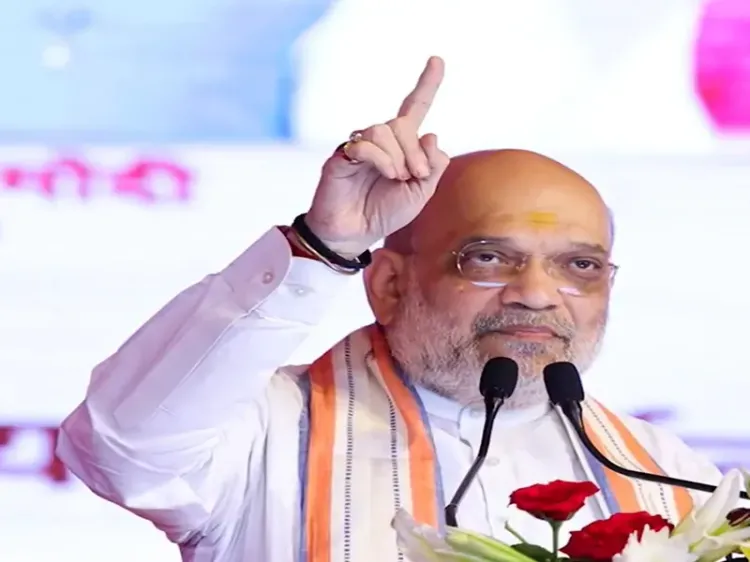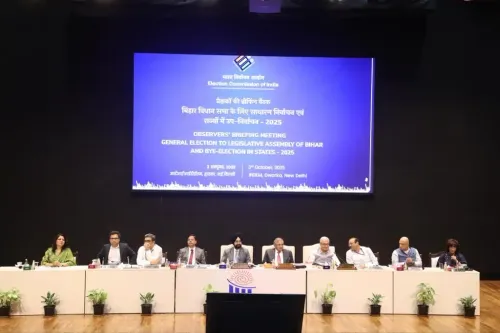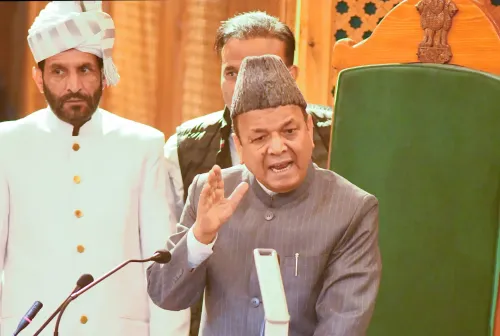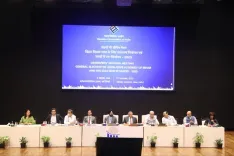Has the Conviction Rate in Haryana Really Doubled with New Laws?

Synopsis
Key Takeaways
- Conviction Rate Improvement: Haryana's conviction rate has jumped to over 80%.
- New Legislative Framework: The new laws replaced British-era criminal laws.
- Merit-Based Job Allocation: Jobs are now awarded based on merit alone.
- Focus on Justice: The new laws emphasize justice over punishment.
- Women's Rights: New provisions support women's access to justice.
Kurukshetra, Oct 3 (NationPress) Union Home Minister and Minister of Cooperation Amit Shah stated that the conviction rate in Haryana has surged from approximately 40 percent to over 80 percent following the introduction of new laws. He made this announcement during the inauguration of a state-level exhibition focusing on new criminal laws.
On this occasion, the foundation stone for various development projects was also laid, attended by Chief Minister Nayab Singh Saini, Union Home Secretary Govind Mohan, and other distinguished guests.
The Home Minister revealed that the state government has launched four development initiatives worth nearly Rs 900 crore and has initiated the groundwork for eight additional projects.
Shah expressed gratitude for the continuous support from the people of Haryana, stating, “For the third consecutive time, they have granted us a majority, and our administrations have diligently worked towards Haryana's development.”
He emphasized that for the first time in Haryana's history, the government has adopted a comprehensive vision, devoid of narrow interests, to ensure governance reaches every district and community.
In a state previously known for job allocations based on favoritism, he noted that jobs are now assigned purely on merit, devoid of any form of bribery or nepotism—an impressive milestone achieved by the government.
The exhibition aimed to disseminate information regarding the three new criminal laws introduced by the government led by Prime Minister Narendra Modi, which have replaced antiquated laws established during British rule. Shah expressed his belief that by 2026, every FIR will be resolved within approximately three years.
He pointed out that the previous laws were crafted by the British to sustain their colonial dominance. “Even though we attained independence on August 15, 1947, we remained shackled by laws passed by the British Parliament,” he remarked.
Under Prime Minister Modi's guidance, a new chapter of the Bharatiya Nyaya Sanhita commenced on July 1, 2024, by abolishing these outdated British-era laws.
Shah stressed that these new laws prioritize justice over mere punishment and safeguard the rights assured to even the most vulnerable citizens of the nation by the Constitution.
He highlighted that previously, due to challenges in securing bail, many criminals would languish in jail for years without conviction. Now, police are empowered to request their release after they have served one-third of their sentence.
The new legislative framework is designed according to three guiding principles laid out by Prime Minister Modi: Citizen First, Dignity First, and Justice First.
Shah also acknowledged that while PM Modi has driven reforms across multiple sectors in India, the most transformative reform of the 21st century is represented by these three new laws concerning our criminal justice system.
He described how modern policing now relies on data analytics rather than force, utilizing scientific evidence over outdated interrogation methods. The five pillars of the criminal justice system—police, prisons, judiciary, prosecution, and forensics—are now interconnected online.
The new laws also feature a dedicated chapter for women and children. With the introduction of e-FIR and zero FIR, women are no longer required to visit police stations in person.
Mandatory videography of all seizures has been instituted, ensuring the integrity of evidence. Furthermore, forensic investigations are now obligatory for all offenses with potential punishments of seven years or more.









